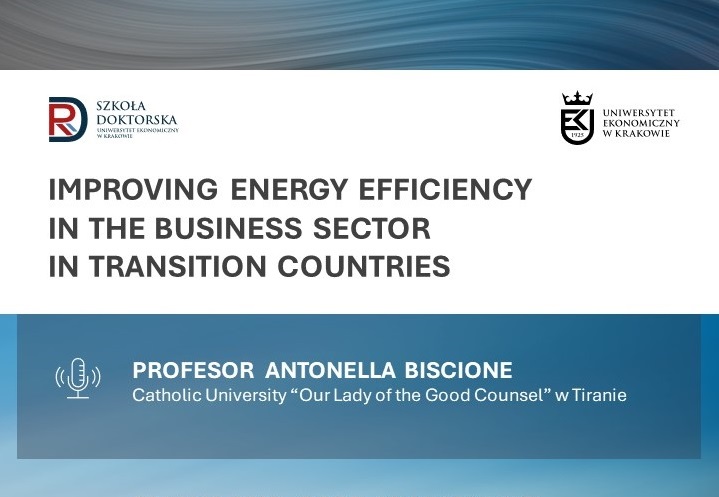
JUNE 3, 2022, 4PM (ONLINE)
link to the meeting on the Zoom platform:
https://zoom.us/j/94563319297?pwd=dFBVb3Y0azNycDVaeVJyLzk4MmlqZz09
Meeting ID: 945 6331 9297
Passcode: Q8Sj4S
Improved energy efficiency is becoming a prior goal of the Energy Efficiency Directive 2012/27/EU integrated with the Directive 2018/2002. Both directives aim not only to protect the environment, mitigate climate change with a 32.5 % target for 2030 and achieve zero emission electricity production by 2050, but also to reduce firms’ energy costs linked to the increase in energy prices and the application of technological innovation (European Union, 2012; 2018). However, firms often fall to achieve this objective due to persistent barriers. However, firms often fail to achieve this objective due to persistent barriers. The presence of the latter does not allow the firm to implement measures that enable it to reach an optimal level of efficiency, thus causing the so-called “energy gap” which is difference between energy use and energy efficiency or between effective use and optimal efficiency (Backlund et., 2012; Allcott and Greenstone, 2012; Jaffe and Stavins, 1994). Therefore, there is an increasing attention among scholars and policymakers to better understand the barriers in hindering firms’ energy efficiency. In this seminar, we deal with from an empirical perspective the barriers that affect the adoption of energy efficiency measures by firms operating in manufacturing, retail services and other services in a set of 28 transition countries.
Antonella Biscione, assistant professor in Economics at the Faculty of Economics, Political and Social Sciences- Catholic University “Our Lady of the Good Counsel”- Tirana. BA & MA in Political Science at the Faculty of Political Sciences, University of Bari in 2005, Msc in “European Policies, Anti-Desertification Strategies and Euro-Mediterranean Integration” at the Faculty of Agriculture- University of Basilicata. PhD in „Economics and Demography” at University of Bari. Research visits at Academy of Economic Studies in Bucharest, the Haut Commissariat au Plan in Rabat (Morocco), and at the University of Sherbrooke, Canada. Her research interests are inequality income and the poverty in the Balkan countries.



